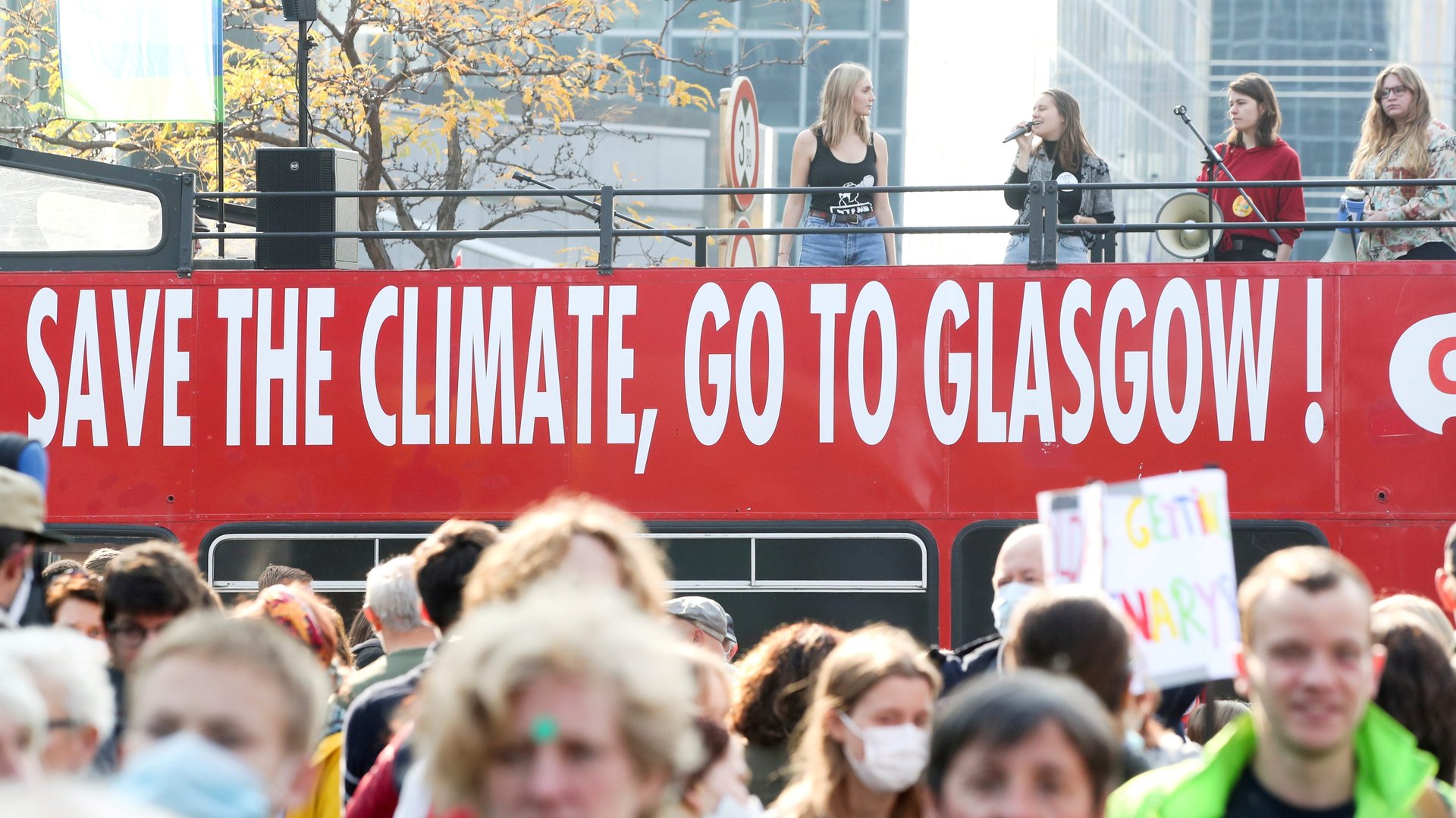Scotland’s transport workers say they planned to strike during COP26 over climate justice
Scottish rail workers called off a planned strike during the COP26 climate meeting—they had used the global attention on Glasgow as leverage for ongoing negotiations over pay.


Scottish rail workers called off a planned strike during the COP26 climate meeting—they had used the global attention on Glasgow as leverage for ongoing negotiations over pay.
Bus drivers, garbage collectors, school cleaners, and janitors, also planned to go on strike during the summit, and there could have been chaos. Glasgow’s functioning and physical appearance would hit a note contrary to the goals of the summit—one of a world awash in trash and without sustainable infrastructure.
“This the irony of it,” said Mick Lynch, secretary-general of the National Union of Rail, Maritime, and Transport Workers (RMT), ”Rail jobs are green jobs.” The workers operating urban public transport, he says, provide a service that is essential to green transport. “You can’t have climate justice without pay justice,” he added.
In 2015, the Paris Agreement adopted during COP21 noted that a “just transition“—the idea that as economies switch to more sustainable systems, governments should take into account the fair employment of people who are affected—is an essential dimension of climate change. It’s a provision that the International Transport Workers’ Federation (ITF) invoked as the RMT strike loomed over COP26.
“It is a powerful reminder of the central role that workers must play in any transition to a green future,” said Stephen Cotton, general secretary of the ITF.
On Oct. 14, 84% of RMT’s members voted to move ahead with a strike spanning the period of the COP26 summit, from Oct. 31 to Nov. 12. Lynch says the offer of a 4.7% raise over two years is less than projected inflation in the UK and amounts to a “pay cut.” On Oct. 27, they accepted a 2.5%, one-year pay rise backdated to April.
What does this have to do with climate change?
The transition from a fossil fuel-driven economy to a sustainable one will require cataclysmic transformations of existing systems. The International Labor Organization, a United Nations agency, estimates that a new green economy will create a net increase of 24 million jobs globally. However, millions of workers will be affected during the transition. Some will lose their jobs, especially those directly related to the fossil fuel industry. or their tasks may fundamentally change.
The concept of a just transition, as laid out by the ILO, aims to steer governments towards making provisions for workers as they shift to greener economies, and create well-paying jobs that bring down a country’s poverty rate.
The possibility of an RMT strike had been brewing for a long time, independently of the COP26 conference in Glasgow. But Jeremy Anderson, who leads sustainability for the ITF, says the planned industrial action shows the difficulty of protecting workers’ rights, and including their input as governments solidify their decarbonization plans, and investments pour into sustainability projects.
“It’s very worrying that COP26 does not even recognize the crucial role that these workers have,” Anderson said. “This is an example of how not to do a just transition.”
This piece was updated after ScotRail and RMT reached a pay deal late on Oct. 27, and all planned strike actions were withdrawn.